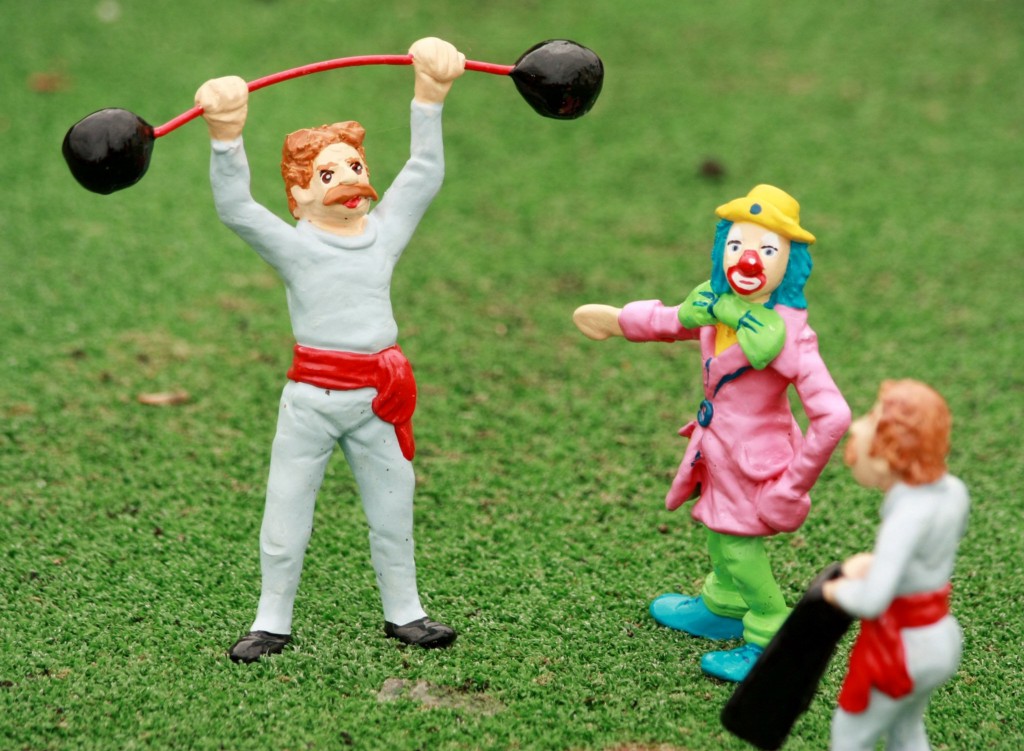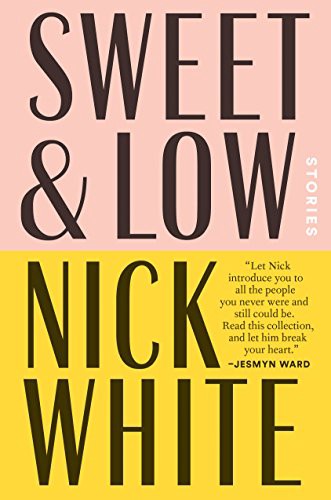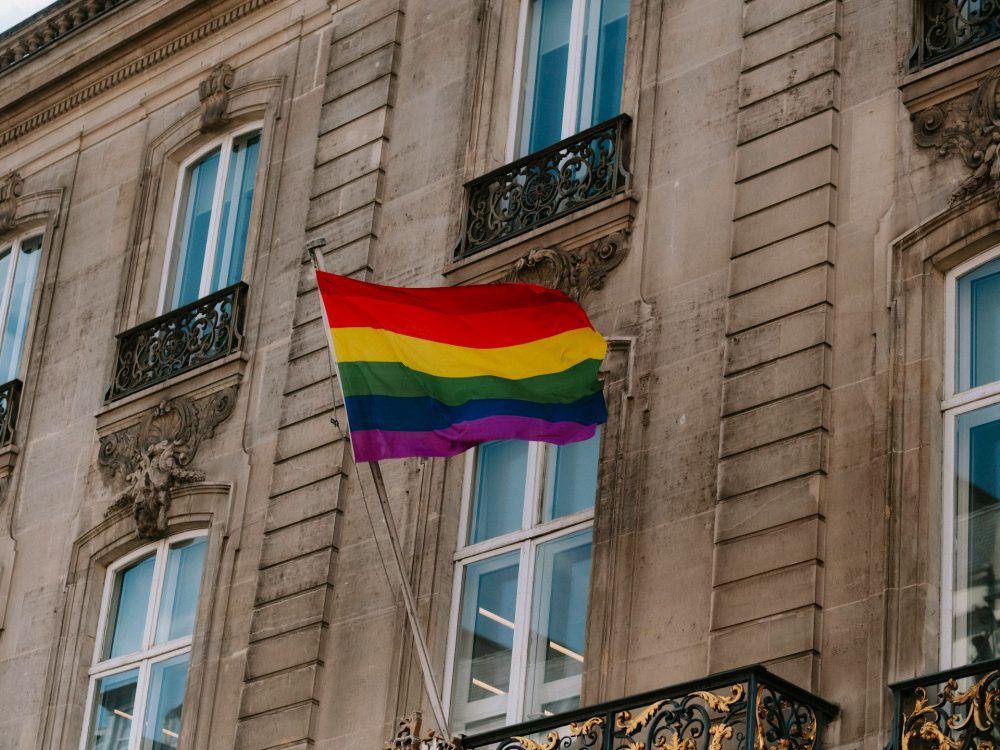Interviews
Nick White Dances Outside the Bounds of Masculinity
The author of ‘Sweet and Low’ discusses being a queer Southerner challenging the status quo of masculinity

A s Nick White says in our interview, “This is the summer of the short story.” And his first collection, Sweet and Low, certainly deserves inclusion on any list of the summer’s best short story collections. The stories contained in Sweet and Low are brilliantly constructed, with each offering genuinely affecting moments. While reading White’s stories, I can’t help but feel as if I am reading a new master of the Southern gothic — one reminiscent of William Faulkner or Flannery O’Connor.

Sweet and Low centers around the lives of Southerners who are simultaneously grappling with their futures and dealing with ghosts of their pasts. White dives into issues of the South, while also exploring the complexities of masculinity. Fans of White’s debut novel, How to Survive a Summer, about a young man who is sent away to a gay-to-straight conversion camp, will find plenty to love in Sweet and Low.
I talked to Nick about the feeling of placelessness that comes from being a queer Southerner in exile, challenging the status quo of masculinity, and his recommendations on forthcoming short story collections.

Bradley Sides: How to Survive a Summer and the stories that make up Sweet and Low take place in and around the American South. I know you are from Mississippi. As a Southerner myself, I see the South as a complicated place. It’s rich with beauty, but it’s also broken in many ways. I’m curious what your relationship is like with the South.
Nick White: Yes, I too worry over my relationship with the South. Am I doing enough to capture its complexity? Am I relying too much on old tropes of past works of Southern literature? Does my voice even matter? These questions haunt me.
I lived in Mississippi for the first twenty-four years of my life, and I couldn’t wait to leave. And even though I have lived in the Midwest for almost a decade, I still have terrible bouts of homesickness. Only when I moved away did I realize, as one is wont to do, what I was leaving behind. I love living in the woods, far from everything, and I love small towns and little communities, even the toxic ones have their own kind of beauty — a wicked beauty, but a fascinating one nonetheless.
When I came out, I thought these spaces would be forever closed off to me. I don’t know if this was a notion I had learned from popular culture, or inferred from my own experience growing up there — maybe a little of both.
Right now, despite the current political climate, despite everything, I am made hopeful by some progress in my home state. Professor Jaime Harker from the University of Mississippi (along with her partner Dixie Grimes) just opened the first feminist queer bookstore in Water Valley, MS, and I am heartened by the existence of such a place in the Deep South. (Incidentally, I hope to visit the bookstore when I go down to read in Mississippi in June.)
Another highlight of queer life in Mississippi: this past March in Starkville, the queer students of Mississippi State University challenged the board of alderman’s decision to reject their request to have a pride parade in the city and eventually won the day. I gave a reading at the university on the Thursday before their big weekend of festivities, and the two students who led the charge came to my reading and presented me with a gift bag, which included a rainbow-colored Starkville Pride bracelet that I am still wearing. After the reading, they invited me to the Student Union where they were having a viewing party of the latest episode of RuPaul’s Drag Race. I don’t mean to get sentimental here — but, screw it: when I walked in and saw all these queer kids laughing and shouting and taking up space, I could barely keep it together. When I was a college student not that long ago, such an event like this was almost unthinkable. I may have wept a little, but it was dim in there, so I don’t think anybody noticed — the kids were too busy talking back to the queens on TV to worry about this weepy older guy who’d come tottering in. I didn’t know any of them, and they didn’t know me, but it was the first time, in a long time, that I have been home and felt, truly, at home.
Queer folk in Mississippi are doing some amazing work. They are braver than I was when I lived there. They have become, in many ways, my guiding light. I look to them and am encouraged to keep writing my own queer letter to the world.
BS: William Faulkner is, of course, one of the South’s most beloved writers of short stories and of novels. Your story “The Curator” holds Faulkner near its core. Has his legacy shaped your writing?
NW: Perhaps every writer from the South, certainly every writer from Mississippi, has to contend in some way with that haunting ending of Absalom, Absalom!: “‘I don’t hate it,’ Quentin said, quickly, at once, immediately; “I don’t hate it,” he said. I don’t hate it he thought, panting in the cold air, the iron New England dark: I dont. I dont! I dont hate it! I dont hate it!”
Whether I want to be or not, I am in conversation with these ideas of place and feelings of placelessness that come from being a queer Southerner in exile.
9 Books About Being Southern and Queer as Hell
BS: Do you have a favorite Faulkner work?
NW: “The Bear” — that long novella in his book Go Down, Moses. I grew up in a family of hunters and never understood how folks enjoyed such brutal work. Faulkner explores both the brutality and the romance of the hunt and how these are inextricably bound up with the protagonist Isaac McCaslin’s identity of himself as a “man.” Also, the sentences…my lord, they are fabulous. I think there is one in section four that clocks in at around 1600 words.
BS: The characters throughout your work, and especially the young men, seem to struggle with accepting a kind of rugged masculinity that society seems to want them to embrace. Why do you think it’s so difficult for society to welcome a new brand of gentler masculinity?
NW: Fear. When the status quo is challenged, people freak out.
At first, I did so by merely existing: I have always been a sissy. I knew I was a sissy long before I knew I was gay. My voice has always been too high, my mannerisms too femme, my obsessions with Lisa Frank and nighttime soaps too girly or camp. I was tortured for it at school. Ostracized, spit on, teased — my experience with this kind of hate is nothing new for those of us who are different, and it taught me to lie, to deny myself, lest anyone suspect I might be gay, when, of course, I probably fooled no one.
It feels so good to have to have reached a point in my life (thanks to therapy) where I know, at least, this much is true: what a gift my queerness is. I treasure being gay. But I do still understand the fear that comes from dancing outside the strict bounds of masculinity that was foisted upon me since infancy. I think exploring this fear and this uncertainty is what drove me to write much of what became Sweet and Low.
Whether I want to be or not, I am in conversation with these ideas of place and feelings of placelessness that come from being a queer Southerner in exile.
BS: One of my favorite stories in Sweet and Low is the first one, “The Lovers.” Here, we find a widow and a lover uncovering secrets about a man they both loved. It’s a beautiful and moving story. I was especially drawn to a line that begins the final section of the story: “How well can you know a person?” It’s a haunting thought, especially in the context of the situation in the story, which I won’t spoil. What do you think is the answer to the question you present?
NW: I think about this question a lot. My answer wavers, depending on current mood and the amount of alcohol in my bloodstream. I am multitudes, Granddaddy Whitman says. And I am never exactly the same person at any given point in time. There is a version of myself that I become for my students, and a version of myself for my boyfriend, and a version of myself here and now in this interview. All of them are slightly different, but all are authentically me.
I think we can usually only ever know versions of each other. Maybe that is a good thing. Another question I think my characters should probably ask is “How well can you know yourself?” The answer to this one is perhaps too frightening to consider, so I won’t.
BS: You populate Sweet and Low with such dynamic characters. Many of them are mostly good people who make mistakes. There are a few, however, who are bad dudes. What’s your take on writing unlikeable characters? Are they necessary?
NW: I don’t know that I have ever thought of a character in terms of whether or not I like them. Are they interesting? Do I want to know more about them? How did they get this way? What do they want? These questions usually clog up my brain when I am drafting.
In the early stages of writing, I always struggle to figure out the people in my fiction. When I am working with a character that readers might label a “villain,” I try to remember that the character doesn’t think of herself as a bad person, that she believes she is doing what is necessary to get what she wants. She is the heroine of her own story, even if she is causing a lot of havoc in mine. When our characters do awful things, I think we as artists have to do the work to understand the stories they are telling themselves, their motivations, even if not one bit of that information ever makes it to the page.
Wouldn’t it be kind of boring if we only had likeable characters in our fiction? Don’t we sort of love to see characters behaving badly? Would we have watched Dynasty if there had been no Alexis Carrington, or Melrose Place if there had been no Amanda Woodward? I think not. Try watching the early seasons of those shows without these women. Minus the shoulder pads and big hair, it’s a total snooze fest.
I treasure being gay. But I do still understand the fear that comes from dancing outside the strict bounds of masculinity that was foisted upon me since infancy. Exploring this fear and this uncertainty is what drove me to write ‘Sweet and Low’.
BS: I’m always interested in the genesis of characters. As I was reading, I couldn’t shake Pete from “Cottonmouth, Trapjaw, Water Moccasin” or Forney Culpepper from the linked stories in the second part of your collection.
Pete is hurt by abuse he experienced as a child, but he also does a lot of hurting. He beats his own son, causing him to leave home. At one point, you write, “Pete hoped to instill some meanness into the boy, one stroke after another.” Forney Culpepper, who appears in multiple stories — as a young boy and, eventually, as an adult — has his own troubles. He has a difficult youth, and he does some terrible things later.
What was the inspiration behind these two complex — and complicated — characters?
NW: These men are dealing with legacies of violence and neglect that they have inherited from their forebears. I’ve known men like this my whole life. I am related to men like this, lived next-door to men like this, went to school with men like this — they’ve terrorized and cajoled me. They’ve lured me into their ranks and expelled me once they found me wanting. They try and fail to make sense of their anger and loneliness, as do I.
BS: Since finishing Sweet and Low, I’ve read Jamel Brinkley’s A Lucky Man and Nafissa Thompson-Spires’s Heads of the Colored People. I think it’s safe to say that lovers of short stories are in for a treat this summer. What collections can you recommend that are on the horizon?
NW: This is the summer of the short story, and, honey, I am thrilled. First, folks should read, if they haven’t already, Brinkley’s A Lucky Man and Thompson-Spires’s Heads of the Colored People — they are truly wonderful books, and I will be teaching from both of them next year in my workshops. Curtis Sittenfeld’s You Think It, I’ll Say It left me gagging as well. After finishing her story “The Prairie Wife,” I felt faint and heartsick and maybe a little broken — there is a sort twist at the end, which I won’t spoil, but is, to my mind, a masterstroke. Goddamn, what a book.
In addition to those, I am excited to share my book’s birthday with Lauren Groff’s highly anticipated collection Florida. Line by line, her stories marvel. Readers should check out the second story in that collection, “At the Round Earth’s Imagined Corners,” which is my personal favorite. It takes place over the whole lifespan of a single character, and I’ve read the story several times now and still don’t quite understand how she pulls it all off. I’ve come to the conclusion that the story must be made of magic. Anyhow, the whole book soars. A mentor of mine, Lee Martin has a new collection, The Mutual UFO Network, coming out on June 12 — he is a master of the craft, and no one understands humans more fully and more compassionately than he does. In July, Alexia Arthurs’s How to Love a Jamaican will debut, and I am here for this book, too. I read “Mermaid River” in The Sewanee Review and was blown away by her writing — the story’s ending just destroyed me. In August, I want to check out Catherine Lacey’s Certain American States. I loved her novel, The Answers, and will happily read more words from her. Also in August, Kevin Wilson’s Baby, You’re Gonna Be Mine promises to delight. His work is often both funny and bizarre, and his short fiction, in particular, is like no other. While it doesn’t come out until October, I want to add the 2018 Best American Short Stories anthology, edited this year by Roxane Gay, because I am sure she has chosen work that will light the world on fire.
I could go on, for the summer is full of wonders: Bryan Hurt’s Everybody Wants to be Ambassador to France, Neel Patel’s If You See Me, Don’t Say Hi, Amy Bonnaffons’d The Wrong Heaven, Victoria Patterson’s The Secret Habit of Sorrow. Basically, you need to go to your local library now and put your name on reserve to read these folks’ books. No list is complete and I am sure there are many more collections I haven’t named that should be added here. Many of our best writers are doing wonderful, strange, interesting things with the short story right now: we are all so damn lucky to be able to read them very soon.










